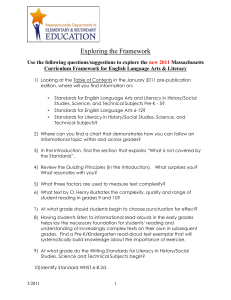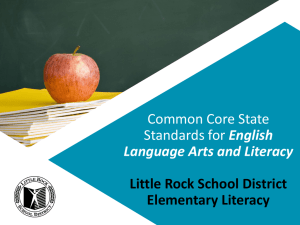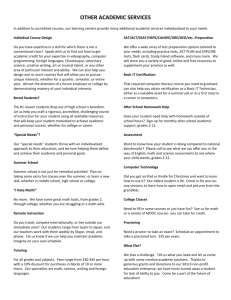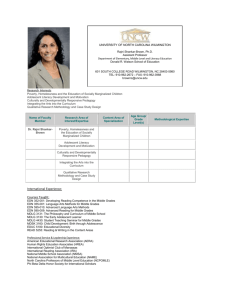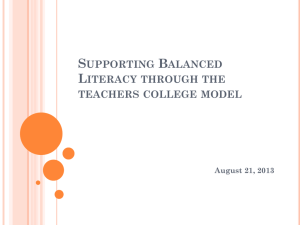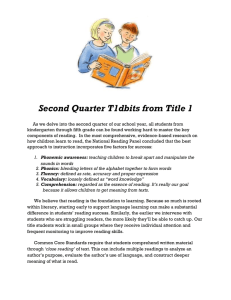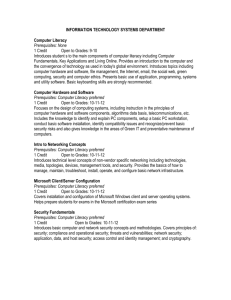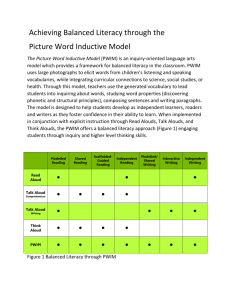Revised Personal Literacy Philosophy
advertisement
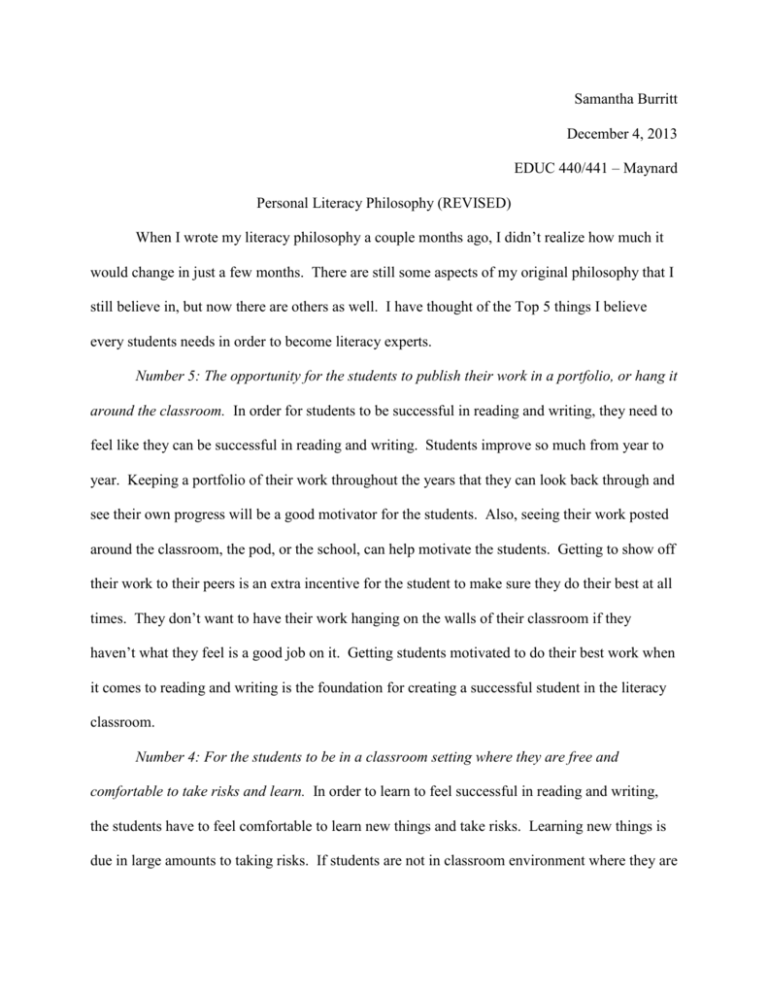
Samantha Burritt December 4, 2013 EDUC 440/441 – Maynard Personal Literacy Philosophy (REVISED) When I wrote my literacy philosophy a couple months ago, I didn’t realize how much it would change in just a few months. There are still some aspects of my original philosophy that I still believe in, but now there are others as well. I have thought of the Top 5 things I believe every students needs in order to become literacy experts. Number 5: The opportunity for the students to publish their work in a portfolio, or hang it around the classroom. In order for students to be successful in reading and writing, they need to feel like they can be successful in reading and writing. Students improve so much from year to year. Keeping a portfolio of their work throughout the years that they can look back through and see their own progress will be a good motivator for the students. Also, seeing their work posted around the classroom, the pod, or the school, can help motivate the students. Getting to show off their work to their peers is an extra incentive for the student to make sure they do their best at all times. They don’t want to have their work hanging on the walls of their classroom if they haven’t what they feel is a good job on it. Getting students motivated to do their best work when it comes to reading and writing is the foundation for creating a successful student in the literacy classroom. Number 4: For the students to be in a classroom setting where they are free and comfortable to take risks and learn. In order to learn to feel successful in reading and writing, the students have to feel comfortable to learn new things and take risks. Learning new things is due in large amounts to taking risks. If students are not in classroom environment where they are comfortable to step outside the norm, ask questions, and give answers then they won’t ever do those things. If they don’t ever do those things, they will never progress. Part of learning things is about taking risks and getting the wrong answers. If you’re never wrong, you never know when you’re right. The teacher has the most responsibility in this. If you have your students come in at the beginning of the year and make a community of learners within your classroom, your students will be free to take risks and they won’t be afraid to ask questions or to give a wrong answer. This will better allow them to learn what they need to Number 3: The chance to see fluent reading modeled in read-alouds, no matter what grades. We have learned in class that read alouds are opportunities for the teacher to model fluent reading to the students. Read alouds are ways to get students exciting about reading, and reading any kind of genre for that matter. I believe that this is especially important in the younger grades of elementary school, but I also think that it is just as important in the older grades of elementary as well as middle school. I could even argue the same for high school students. If students are read to enough, they lose their interest in reading or they stick to the same type of books instead of exploring other genres. When younger, students need to be read aloud to in order to model fluency. I think that is the most important part to read alouds in the younger grades. However, I think reading aloud to older students is most important in order to get them motivated to read. The older years is when students start to lose their motivation; if they have someone reading to them, I think that it could potentially help them stay interested in reading. I think teachers should read aloud to all grades, with all different kinds of genres in order to keep students on track, learning, and being excited about reading. Number 2: Opportunities to see and practice specific skills and traits of writing. I think that this aspect is often the more forgotten aspect of literacy instruction. I, myself, even lose it in the clutter of everything reading. But I know that it is important for teachers to remember how important it is to teach students all the skills of writing. I especially like the thought of mini writing workshops we have worked on in class. Mini-lessons are such a good way to incorporate any skill within the writing process. As we saw, it encompasses all of the six writing traits and has a focus of something the students need to master. I especially like these mini-lessons because they are very easy to differentiate for your students. Those students who struggle on a previously taught skill can receive more help, while the students who are ready to move on, can. Teachers have to remember that teaching writing is just as important as teaching reading. Number 1: Getting differentiated instruction in order to succeed. This is something that has been continuously harped on in all of our years of our education thus far. Although I will say that it is harped on for good reason. Even just over the course of this semester, I have seen many students who are not getting the correct instruction for their level of reading and I see how much more behind it makes them. Every teacher needs to know the benefits of differentiated instruction. Even now, after my students were split into different classes based on their reading level, there are still so many reading levels within each class, yet they’re all receiving the same instruction on the same material. When students first begin school, they come in on all different levels. Some know the alphabet, some can read, and some know nothing. This is where the differentiated instruction needs to begin. If teachers begin to differentiate their instruction and their activities at a younger age, the gap between the students will close much easier. However, this doesn’t happen. Instruction is usually geared towards the average student, and therefore the students on both sides of that suffer. This eventually leads to the large gaps in reading ability we come across in the upper grades. If teachers can realize how important it is in the beginning, it will help all of the students in the long run. I am going to be a teacher who does this.
